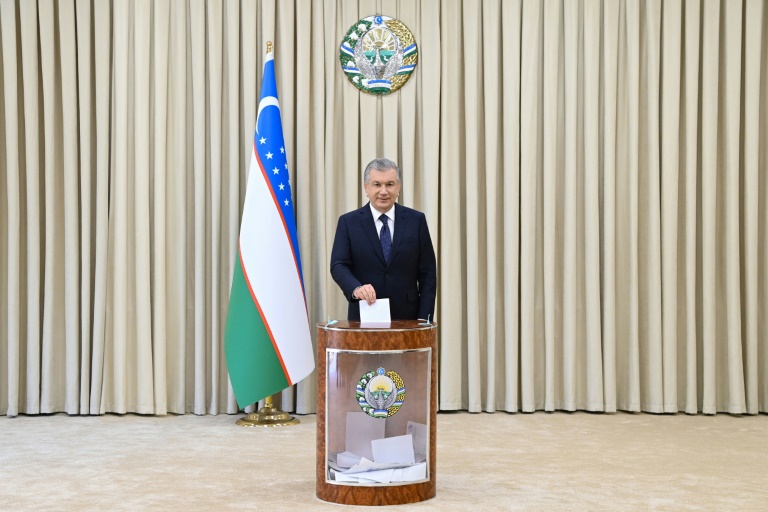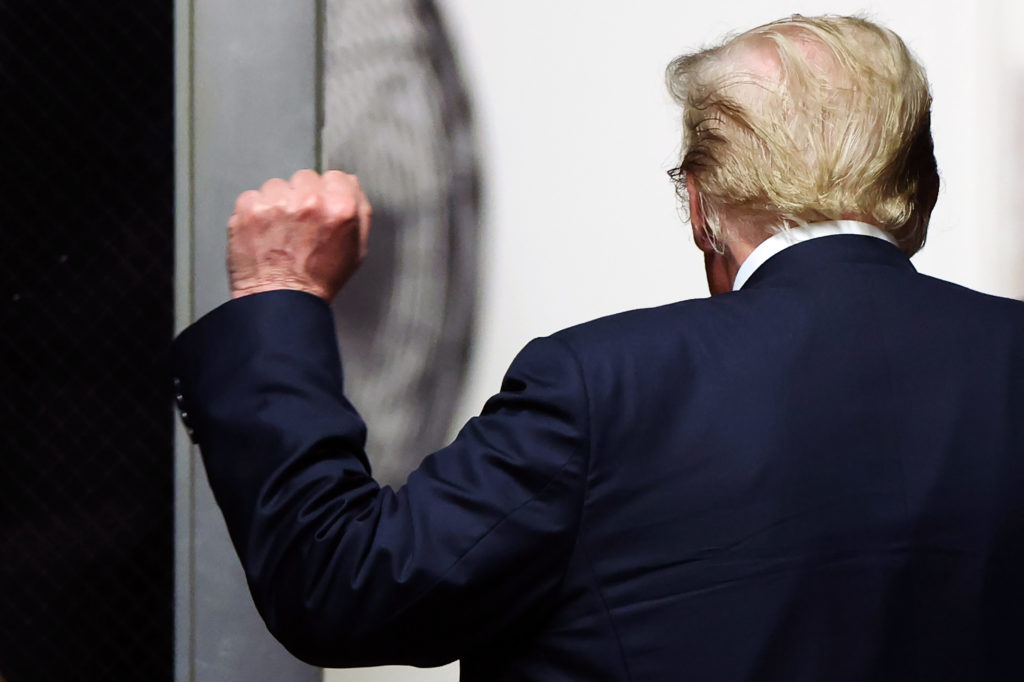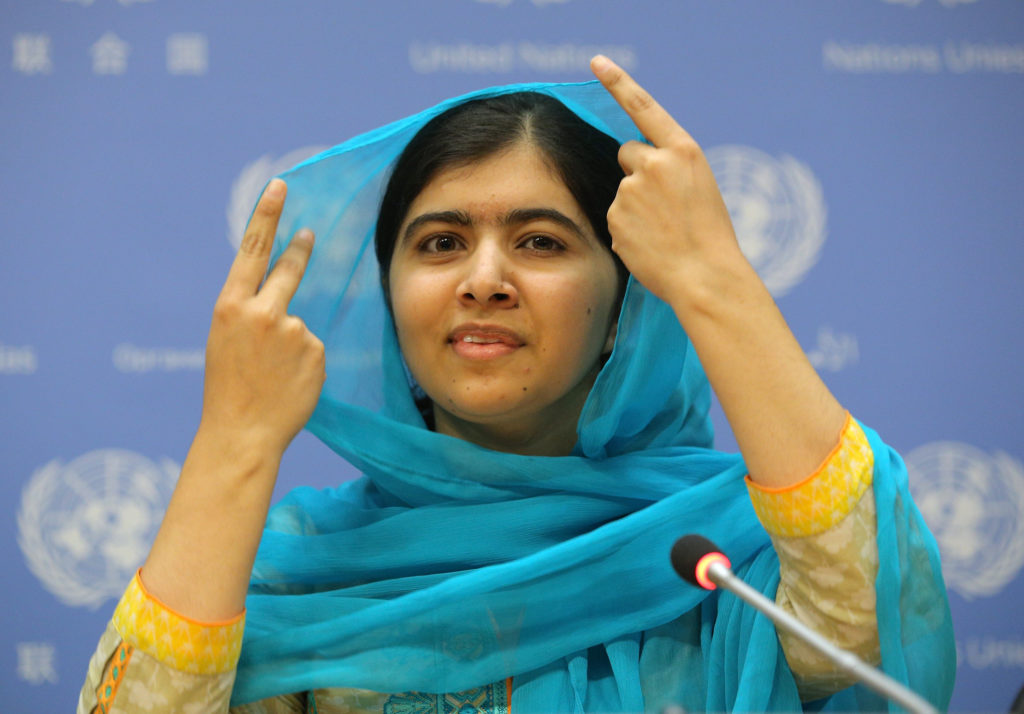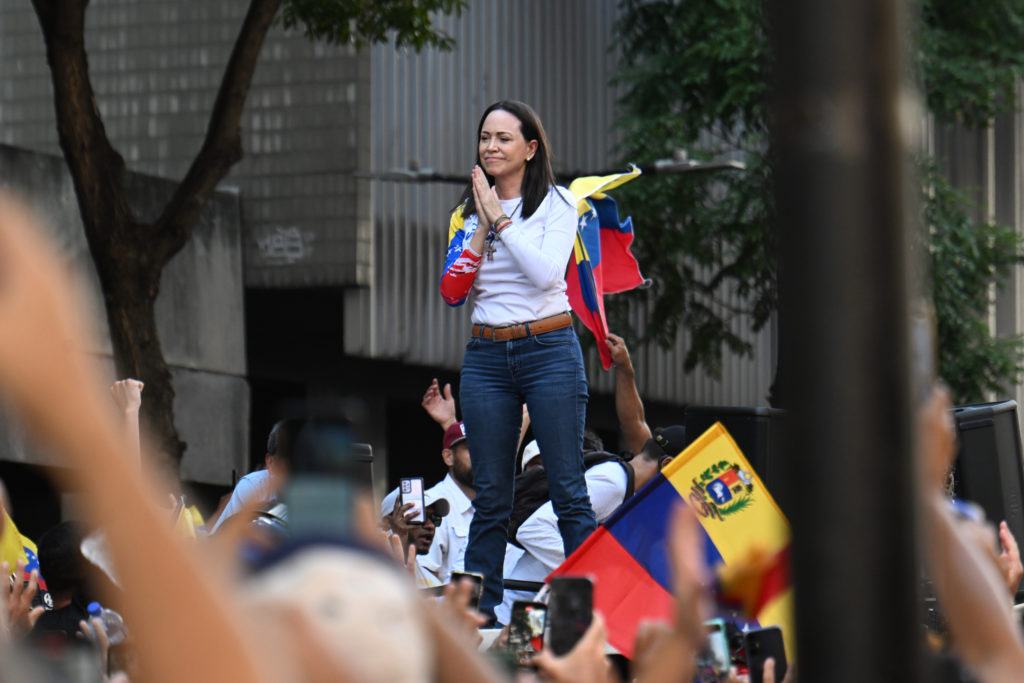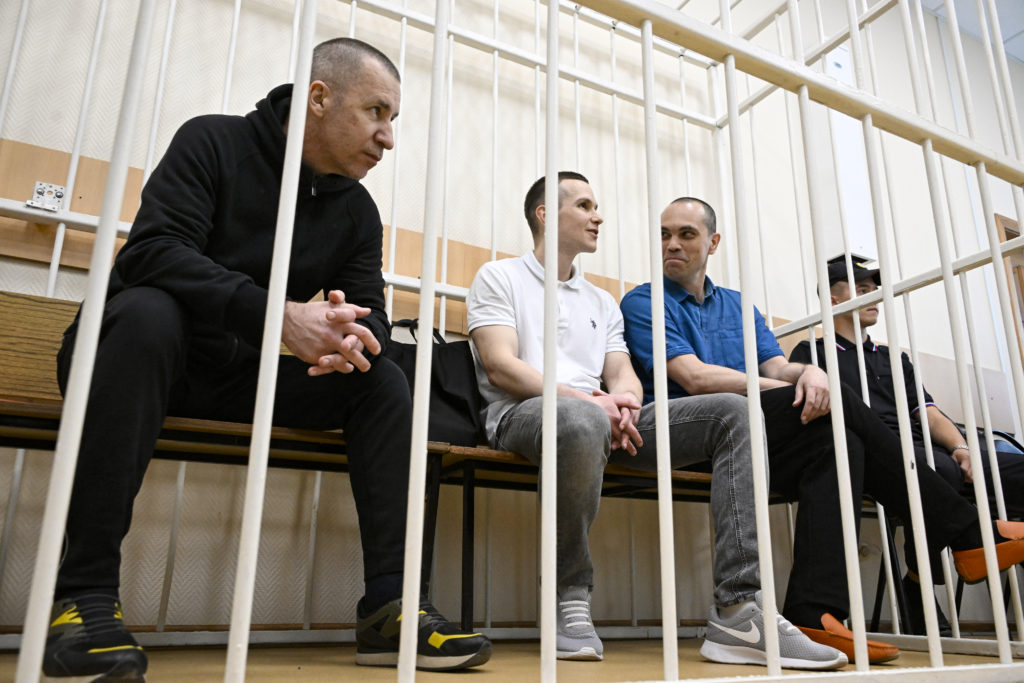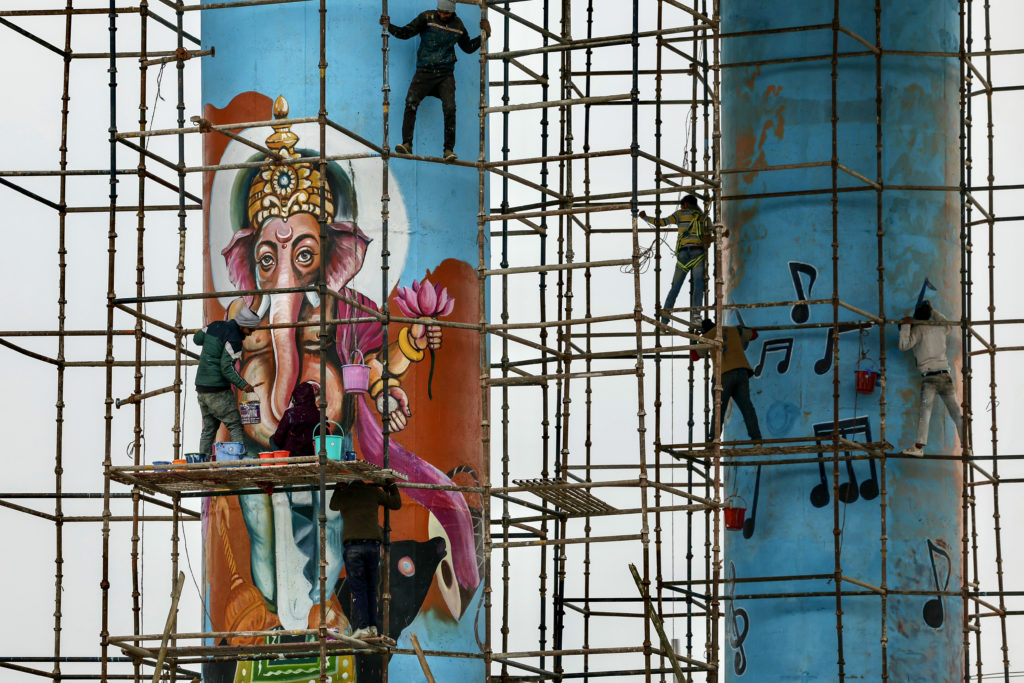Uzbekistan President Shavkat Mirziyoyev was poised Monday for a crushing victory over token competitors, after initiating a reform drive that left the Central Asian country’s authoritarian foundations intact.
The former prime minister came to power in 2016 after the death of his mentor, dictator Islam Karimov, who ruled Uzbekistan for 27 years.
Mirziyoyev has been credited with launching what he calls a “New Uzbekistan” programme, ending a decades-old system of forced labour with roots in the former Soviet Union and introducing limited media freedoms.
But like Karimov, the new leader has sidestepped political reforms that would allow any alternative to his rule.
Official election results were expected to be announced Monday afternoon.
In polls on Sunday, he faced four regime-loyal opponents plucked from parties in the rubber-stamp parliament in an apparent bid to secure a second five-year term.
Uzbek political analyst Alisher Samigzhanov said the vote was a mere show.
“The word ‘opponent’ is contradictory here. None of the (other four) candidates honestly think they can become president,” he told AFP.
A would-be independent challenger, academic Khidirnazar Allakulov, fell at the first hurdle after failing to register a party that could nominate him.
Human Rights Watch said this month that officials “harassed (Allakulov’s) party supporters and interfered in their efforts to collect signatures for registration”.
– Economics yes, politics no –
Mirziyoyev has overseen an unprecedented boom in foreign tourism in the country that borders Taliban-controlled Afghanistan and counts China and Russia among its partners.
But as his first term ends, the 64-year-old president is struggling to counter impressions that his government is sliding back toward the habits of his long-reigning predecessor.
Mirziyoyev himself has stopped short of criticising Karimov, and credited “the huge work done by our first president” at a ceremony marking 30 years of post-Soviet independence in the summer.
Rights groups say that the last two years have seen a crackdown on dissent, particularly on internet freedoms that bloomed after 2016.
The effects of the coronavirus pandemic have also blunted his initial economic achievements, with unemployment rife amid a sharp rise in living costs.
Most voters put economic problems over issues of human rights.
Alexander Rakhmonov, a 28-year-old energy sector employee who backed Mirziyoyev, said that he wanted authorities to do more to develop the country’s rural regions, where energy shortages resulted in rare protests last year.
“In the capital, people have water, gas, electricity. In the provinces, unfortunately, there is a lack of this,” Rakhmonov told AFP.
“There are a lot of poor and homeless people. We need to find housing for people,” said Sardor, a 26-year-old money-changer who also declared his support for Mirziyoyev.
“I hope he will help solve these problems,” he said without giving his last name.
Mirziyoyev has overseen growing economic ties with both Russia and China, even as Tashkent holds out on Moscow’s requests to rejoin the Collective Security Treaty Organisation, a military bloc that it left in 2012.
He has also called for engagement with the new Taliban government in Kabul and has positioned Uzbekistan as a hub for trade and aid for the war-scarred country.
But Uzbekistan has kept the West engaged by readmitting foreign media outlets and international organisations banned under Karimov, as the landlocked country of 34 million people edges out of isolation.

